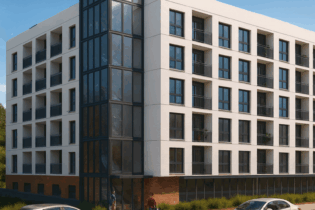
The 2016 State of the Cities report was released today
The report, launched today presents a five-year perspective on the performance and conditions of the country’s largest cities.
According to the Department of Cooperative Governance and Traditional Affairs, the 2016 State of the Cities Report will contribute to ensuring effective and well-functioning municipalities by providing a vital guide in addressing the challenges cities face, as government moves South Africa forward to the ideals envisaged in the National Development Plan.
Cities growing unsustainably
According to the report, the typical South African city has followed a resource-intensive growth path, and suffers from inefficiencies across sectors such as energy, water, waste, food, and transport.
The energy mix is unsustainable, landfill sites are fast running out of airspace, freshwater resources are constrained, and greenhouse gas emissions are increasing (mainly from electricity generation and vehicles that run on fossil fuels).
Cities have to develop sustainable city growth paths and priorities, and put in place systems to monitor their performance.
South African cities are inefficient
In addition of this, spatial transformation is critical for cities to become more productive, inclusive and sustainable.
South African cities are inefficient as a result of the combination of the apartheid legacy, and post-1994 developments that continued to locate subsidised housing and poorer populations in peripheral areas.
Issues of settlement (land access and housing) and mobility (transport) require short and long-term strategies to address spatial inefficiency and exclusion
Cities are driving the economy
Cities have been driving growth, generating almost two-thirds of the country’s economic activity and just over half of national employment, the State of the Cities report found.
Cities have also significantly improved their service delivery, and generally have good strategies in place to facilitate economic growth and social development.
Cities are, therefore, well positioned to take a leading role in South Africa’s economic recovery and development.
Growth and governance
According to the report, cities have been performing and are relatively well-governed, but they have functioned under dynamic and difficult circumstances, and therefore have had a mixed performance.
South Africa’s institutions and systems need to be reconfigured in order to support positive urban growth – something that is echoed strongly in the Integrated Urban Development Framework (IUDF).
This includes a shared recognition and appropriate support across government for the role of cities; better intergovernmental cooperation across the public spheres and sectors; conducive relations with the private sector; the strengthened role and constructive participation of an active civil society; and greater use of the knowledge industry.









